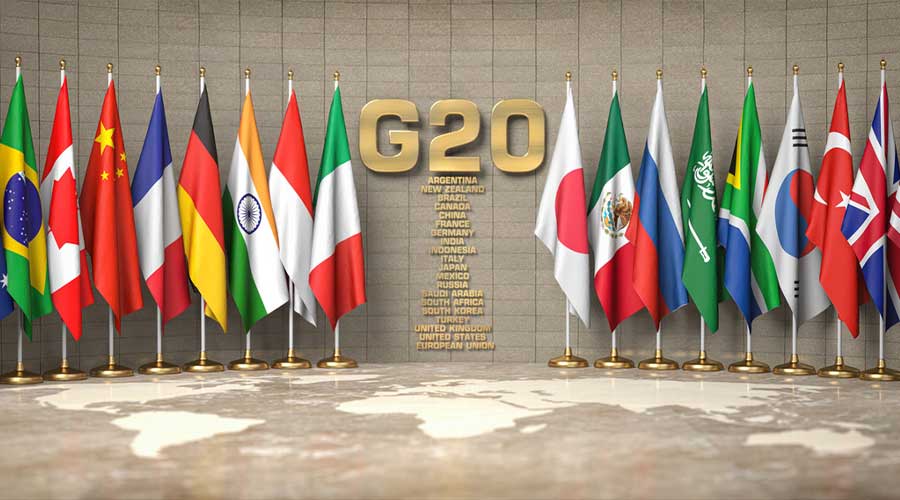The G20 group of leading economies agreed to a debt framework to help countries pursue debt restructuring or forgiveness, building off of its Debt Service Suspension Initiative and recognizing that some nations may need additional relief.
For the first time in history, United States, China and other G20 countries have agreed the same idea on Friday for restructuring government debt as the coronavirus crisis leaves some poorer nations at risk of default.
The agreement came as Zambia said it would not pay an overdue Eurobond coupon by Friday’s deadline, putting it on track to become Africa’s first pandemic-era sovereign default.
Read more: Pakistan gets relief after G20 agrees to additional 6-month debt suspension
Citing the scale of the COVID-19 pandemic and “the significant debt vulnerabilities and deteriorating outlook in many low-income countries,” G20 finance officials agreed more help was needed.
However, G20 agreed on guidelines that oversee how debt deemed to be unsustainable can be reduced or rescheduled, which would be followed by major creditors, including China.
International Monetary Fund Managing Director Kristalina Georgieva termed the framework a historic achievement and said it should increase private sector participation and speed up resolution in cases where debts were unsustainable.
Kristalina Georgieva told G20 officials, “Let’s be very frank here. We are not out of the woods. This crisis is not over. We need further support through debt relief and through fresh financing,” she then warned, African states alone face a financing gap of $345 billion through 2023.
Moreover, a senior U.S. Treasury Department official said Washington was open to extending the joint framework to include middle-income countries and small island states, but that view was not shared by all G20 members at this stage.
French Finance Bruno Le Maire told his G20 counterparts during an online meeting, “I count on everyone’s constructive spirit to ensure swift and cooperative implementation of the common framework, with several countries already asking for debt treatments, in particular in Africa.”





















